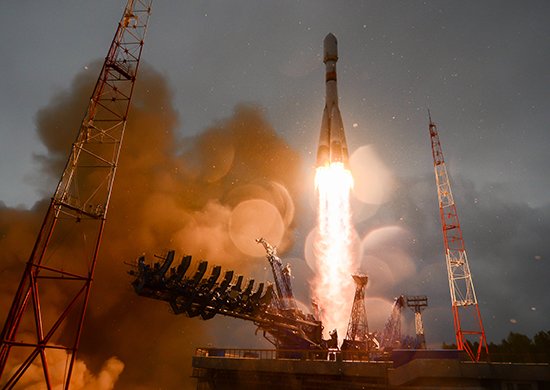
Russia’s Soyuz 2-1b rocket hit a lightning strike a few seconds later, but traveled to space without incident.
According to the Russian Ministry of Defense, the Soyuz 2-1b rocket fired at the Plešesk space station on May 27 (local time). Satellite positioning system GLONASS update satellites are intended to be put into orbit. However, lightning struck the rocket shortly after launch. The rocket was fired when the weather was bad, but it had no effect on the rocket launch.
Поздравляем командование Космических войск, боевой расчёт космодрома Плесецк, коллективы РКЦ “Прогресс” (Самара), НПО имени С.А.Лавочкина (Химки) и ИСС имени академика М.Ф.Решетнёва (Железногорск) с успешным запуском КА ГЛОНАСС!
Молния вам не помеха pic.twitter.com/1cmlZ4hD1g– Дмитрий Рогозин (@Rogozin) May 27, 2019
https://platform.twitter.com/widgets.js
Dmitry Rogozin Director of Los Cosmos says his tweet has not affected lightning. It is rare that lightning strikes a rocket, but it has not happened before. The most famous was the lightning strike two times during the Saturn V rocket launch for the mission Apollo 12 on November 14, 1969. NASA officials said it was the most frightening experience.
С мая в 09:23 мск космодрома Плесецк 27 проведен успешный пуск ракеты-носителя «Союз-2.1б» с российским навигационным космическим аппаратом «Глонасс-М» – https://t.co/eebztIvNKx
Старт ракеты-носителя и выведение космического аппарата на расчетную орбиту прошли в штатном режиме pic.twitter.com/glJQn7Jght
– РОСКОСМОС (@roscosmos) May 27, 2019
https://platform.twitter.com/widgets.js
Of course, Apollo 12 was fired safely in this lightning, and the astronaut aboard was on the moon for the second time. The Soyuz 2-1b rocket did not have an astronaut.


















Add comment